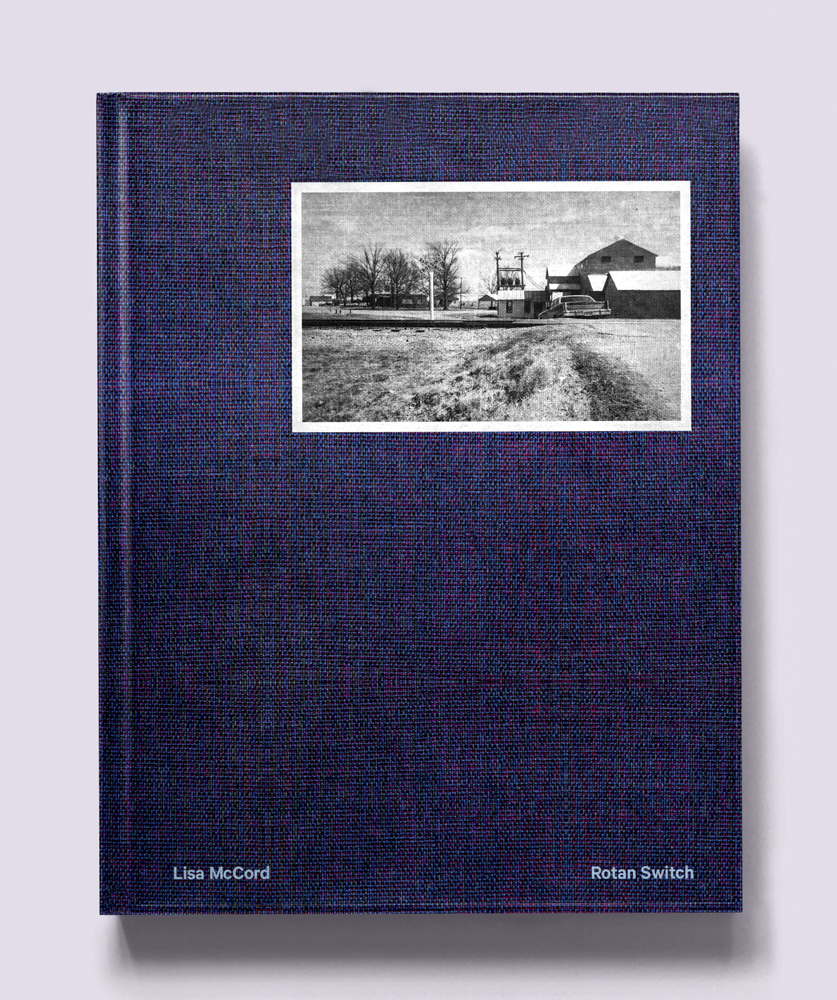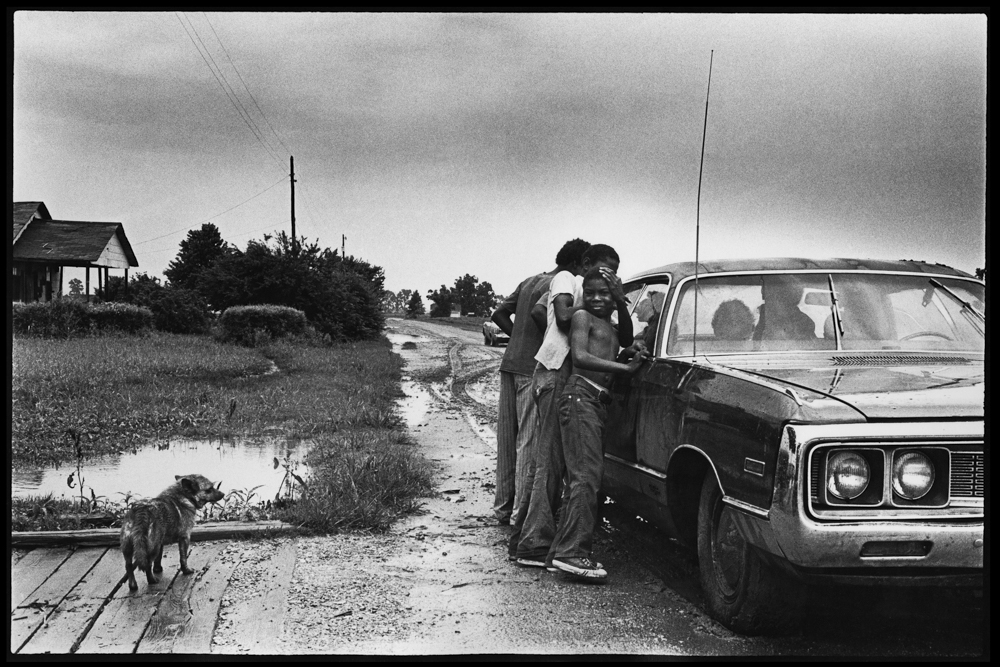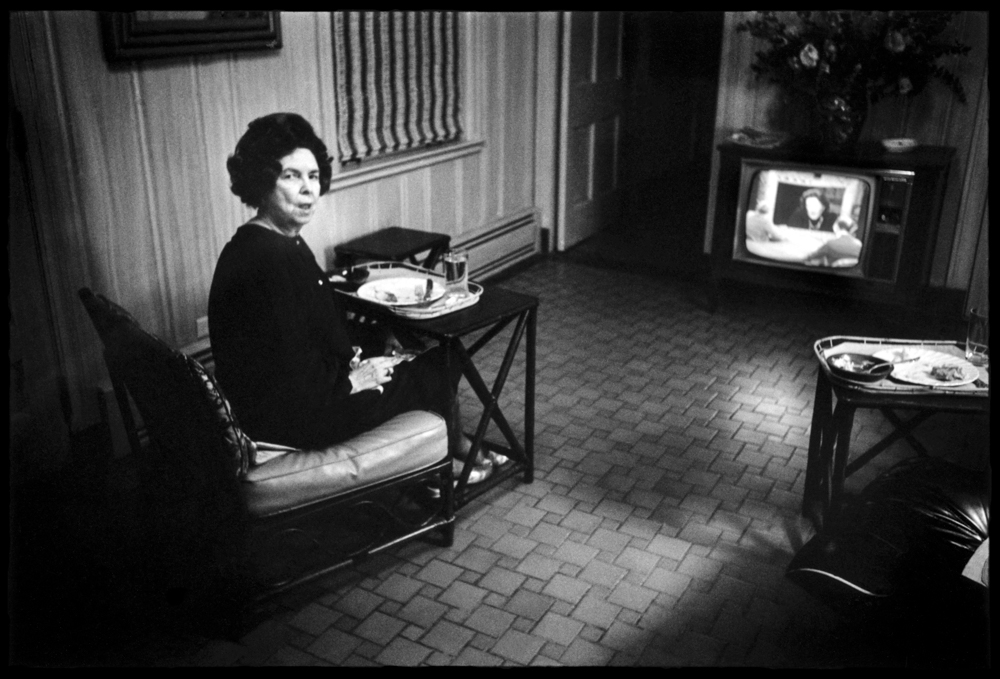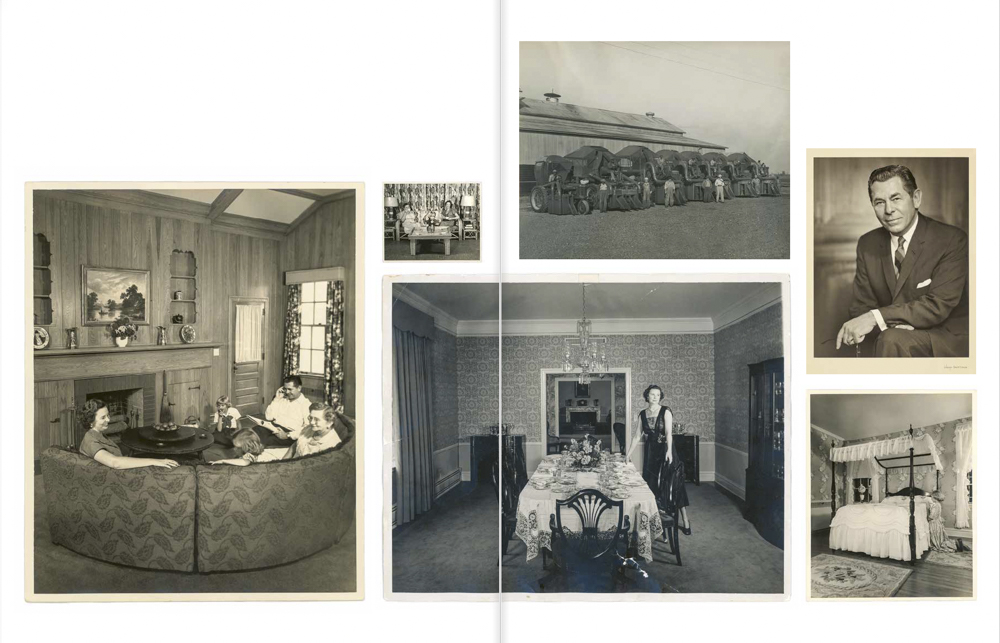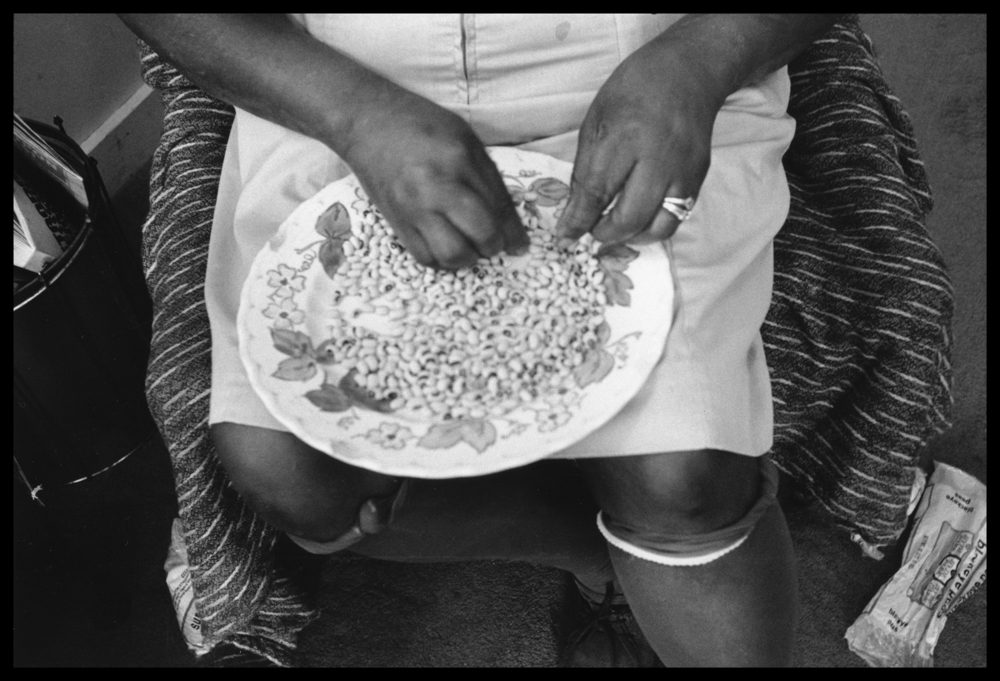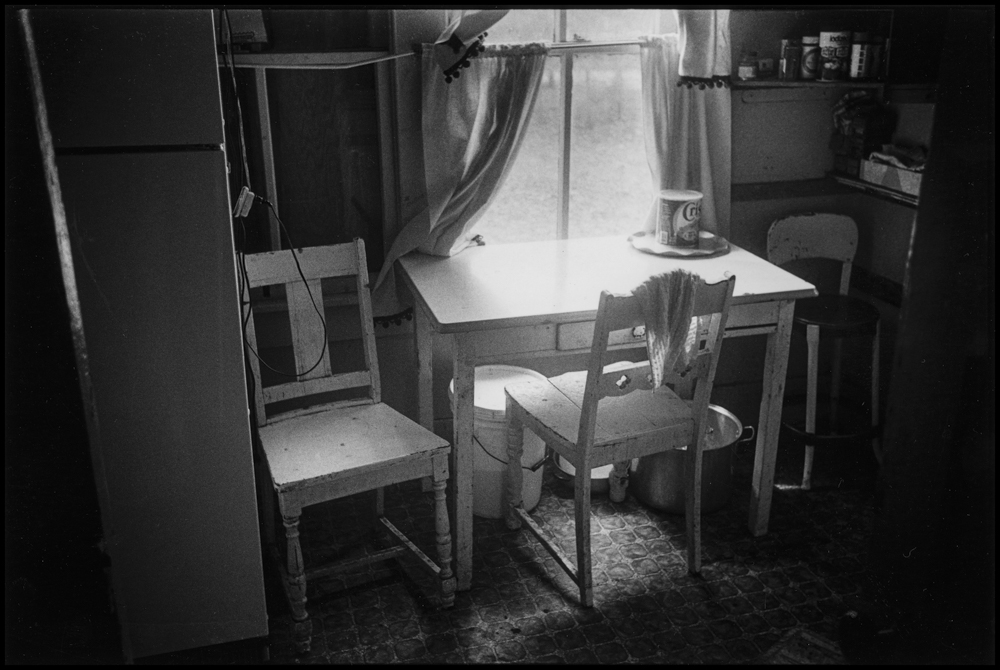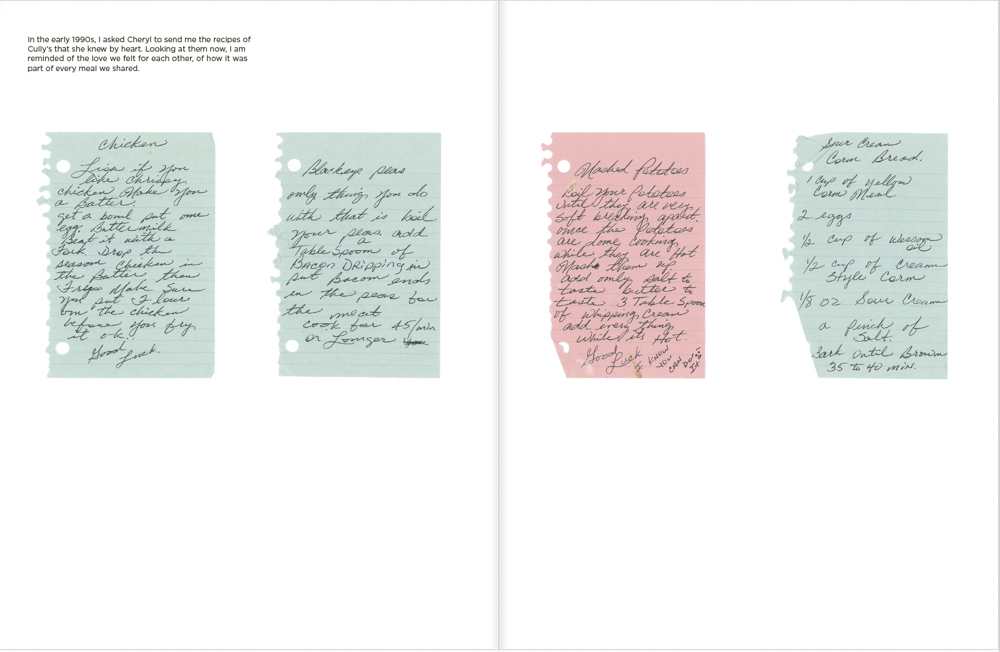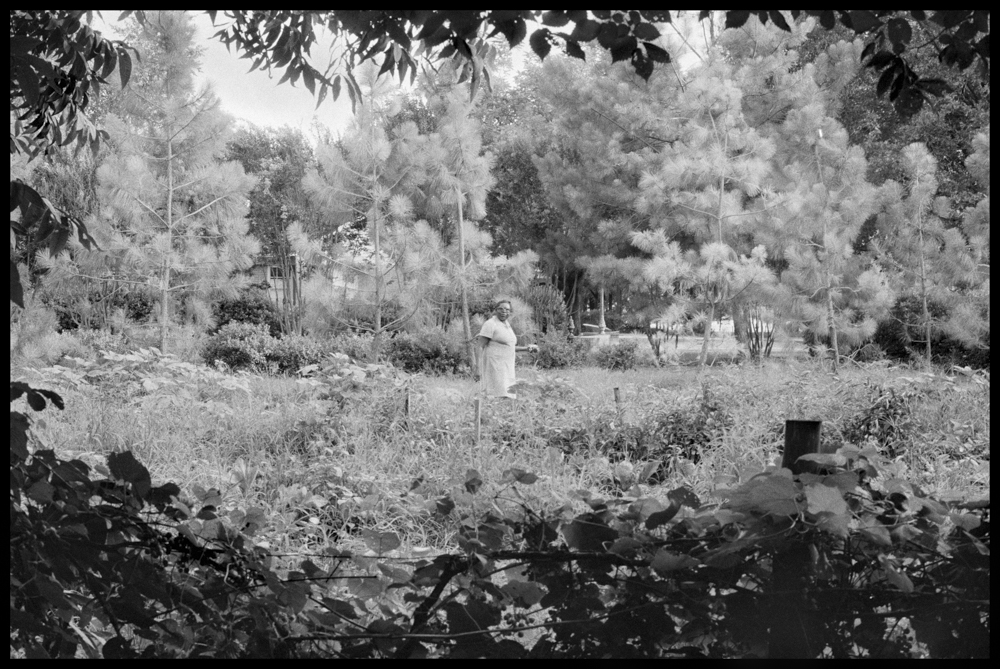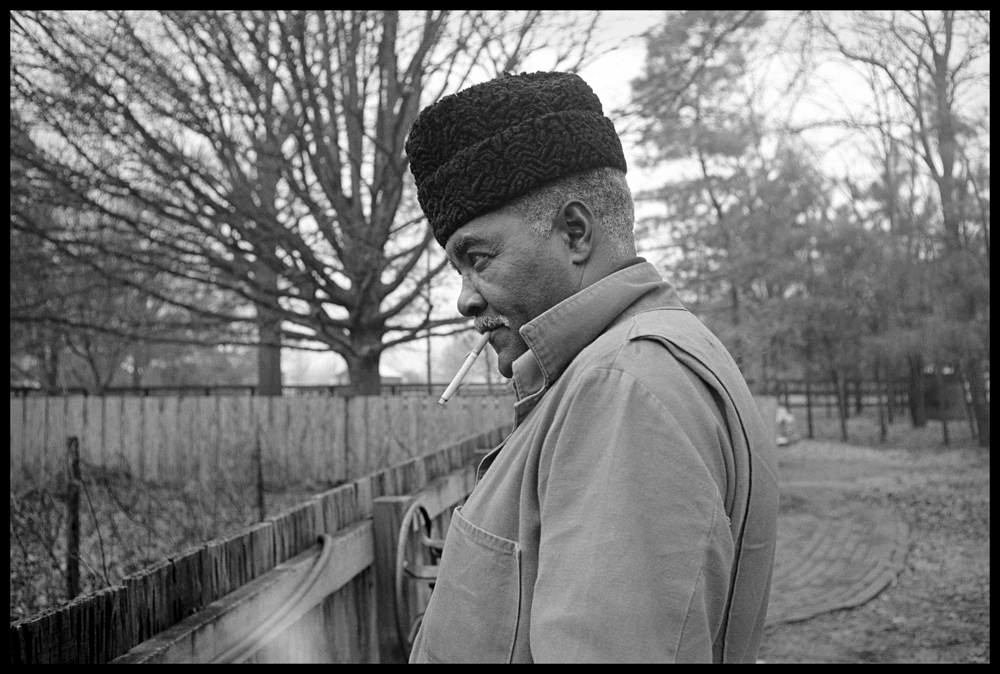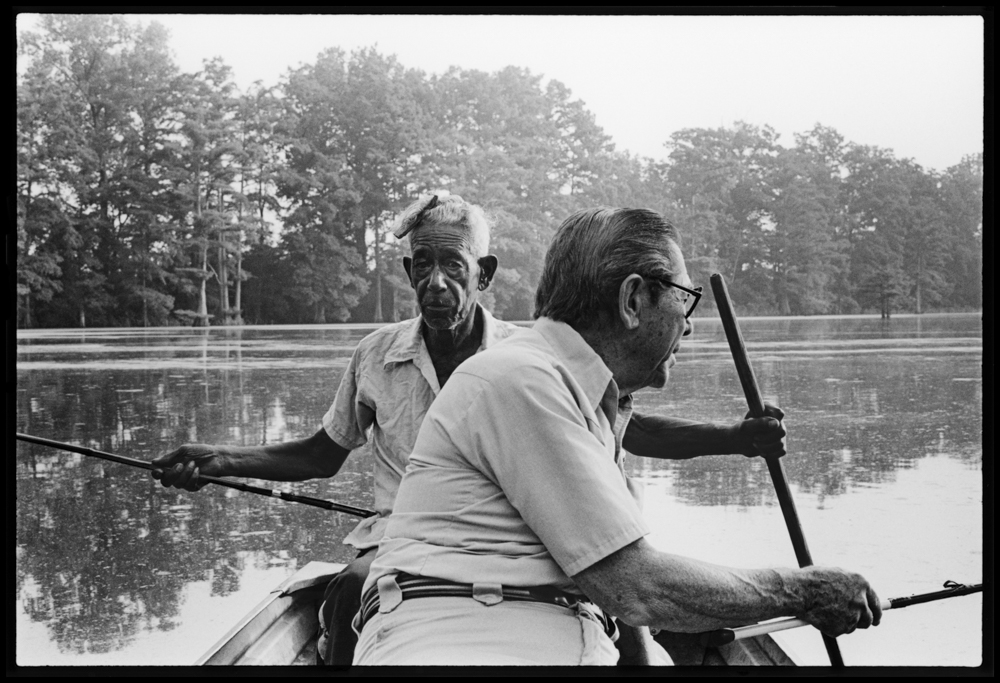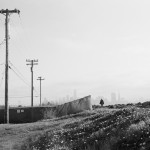Lisa McCord: Rotan Switch
The book is a personal collection of a life lived, a scrapbook that contains the dichotomy of two worlds: the innocence of circumstance and the visual acknowledgment of colliding cultures, that include race and privilege. The artist simply documented her world and the people in it. – Aline Smithson
Rotan Switch is the first monograph by Lisa McCord, published by Kehrer Verlag and designed by Luminosity Lab. Her monograph documents life on her grandparents’ cotton farm in the Arkansas Delta community of Rotan. It takes its name from the community’s central landmark—the railroad switch where farmers loaded their cotton bales onto trains headed out of the Delta. Although it has not been used in years, it remains a potent symbol of the complex intersections of industry and agriculture, of racism and injustice. Collected over the last forty-four years, these images and stories are a reflection on the people and places that have taught McCord the meaning of the word home. Constructed from McCord’s analog photographs, family snapshots and ephemera, including monochrome photographs, color Polaroids, and recipes, this long-term project is also a self-exploration into her inherently complicated role in this community, as the granddaughter of a landowner.
In 1978, Lisa McCord embarked on a profound visual exploration, capturing life on the cotton farm: a photographic journey that goes beyond mere imagery, delving into the rich complexities of community, identity, and the deeply rooted concept of home. The Arkansas land and its people form the essence of the photographer’s sense of belonging. The images unfold a narrative enmeshed with the socioeconomic structures of the US-American rural South. This blend of personal memories and reflections transcends the role of simple documentation, creating a living
record of Rotan’s tale, a unique story entwined with the photographer’s family history in a place where historical inequities persist.
The roots of Rotan trace back to the early 1930s when the photographer’s maternal great-grandfather played a pioneering role in purchasing and clearing the land. However, the family legacy carries the weight of participation in the social and economic injustices prevailing in the rural South. The echoes of love, resilience, and transformation embedded in these images serve as a testament to the multifaceted story of Rotan. McCord not only captures the evolution of a place but grapples with her own role in perpetuating societal structures as a white observer within predominantly Black community. Rotan Switch prompts reflection on the intricate threads weaving the fabric of a community, the evolution of a landscape, and the resilience transcending generations.
Upcoming events include a book signing at photo London, a book signing and exhibition in Osceola Arkansas at Coston Arts Center on July
11, 2024, a book signing at Slow Exposures, September 19- 22, 2024, a book signing at the Los Angeles Center of Photography on September 12, 2024, a book signing at Paris photo November 7 – 10, 2024 and an Exhibition with Building Bridges Art Exchange in Los Angeles in the spring of 2025. Rotan Switch books available on her website and at the Leica Gallery in Los Angeles.
A short interview with the photographer follows.

©Lisa McCord, Granddaddy and Lind with Irrigation System, from Rotan Switch published by Kehrer Verlag
Rotan Switch
Rotan Switch documents life on my grandparents’ cotton farm in the Arkansas Delta community of Rotan, which takes its name from the community’s central landmark—the railroad switch where farmers loaded their cotton bales onto trains headed out of the Delta. Although it hasn’t been used in years, it remains a potent symbol of the complex intersections of industry and agriculture, of race and injustice.
I was twenty-one years old when I began photographing Rotan Switch. This project spans forty-five years, from 1978 to present day, following five generations of a community. I developed close relationships with the people who worked on the farm. They welcomed me into their homes, we’d share fried chicken and black-eyed peas, meet at the cafe where they relaxed at the end of a hard work week, and at church on Sundays we’d sing “Sweet Jesus, Carry Me Home”.
I have lived in many places, but my idea of home remains firmly rooted in the Arkansas land and people. While the photographs I made at Rotan are explorations of this idea, I’m acutely aware that the place I call home is not perfect.
These photographs are complicated; they exist in the context of the socioeconomic structures of the rural South. Although the subjects are family to me, as a white photographer and the granddaughter of a landowner, my photographs of the Black community implicate my own role in reinforcing these power structures. In a community in which most people spend their time working or caring for children, my ability to observe and document in itself has been a position of privilege.
The images are coupled with my own memories, as well as, reflections by the people in the photographs. These images are a record of my story of Rotan and the Arkansas Delta, a story that is specific to my and my family’s role in a place where inequities exist to this day. I have done my best to acknowledge this complicated history. – Lisa McCord
Lisa McCord is a fine art and documentary photographer from the Arkansas Delta, who lives and works in Los Angeles and Arkansas. Focusing on her experiences on her family’s cotton farm, her creative practice explores concepts of storytelling, memory, and the passage of time.
McCord received her BFA from San Francisco Art Institute and earned an MFA from California Institute of the Arts. She also attended New York University, Le Contrejour, Paris, and The Visual Studies Workshop, Rochester, NY. She taught photography at Pepperdine University.
She has exhibited her work in galleries and museums, including Leica Gallery LA, Annenberg Space for Photography, Building Bridges Art Exchange, and Bruce Lurie Gallery. McCord’s work has been featured in solo exhibitions at the Memphis Cotton Museum, Fabrik Projects, Gallery 825, Slow Exposures, and Leica Gallery. Internationally, she has exhibited at the Museum of Nature of Cantabria in Spain, MIA Photo Fair in Milan, and Alta Vista in Paris. McCord’s work is in the permanent collections of the Arkansas Museum of Fine Arts and the Memphis Brooks Museum of Art. She has upcoming book signings at Photo London and Paris Photo in 2024.
Her work has been featured in numerous publications including AAP Magazine, Black & White Photography (UK edition), Float Magazine, and Feature Shoot. She was a Critical Mass Finalist in 2015, 2016, and 2021.
Instagram: @luminositylabdesign/
A.S.: You’ve lived in many locations, but Rotan was a place you have returned to again and again through your life. Is that where you began taking photographs?
L.M.: In 1974, I began taking photographs of my high school peers all wearing the same opaque mask around the grounds of our school, Cranbrook. After graduating high school, I attended New York University, where I took my first official photography class with Marcia Resnick. It wasn’t until 1978, after two years of art school, that I began photographing Rotan Switch.
What about the place made it so special?
Rotan is, and will always be special to me. As a child, I was allowed independence to roam the farm and play with the children who lived there. I was surrounded by love and kindness.
Congratulations on your book. Walk us through the process of getting it published.
Thank you very much, Aline. It was a labor of love. Caleb Cain Marcus of Luminosity Lab, designed and edited the book from cover to cover. I sent a draft of Rotan Switch to Alexa Becker, who liked it and presented it to Kehrer Verlag.
The book has such an interesting layout, that includes new capture, family photos, recipes, Polaroids–it must have been a challenge to fit all the puzzle pieces together.
It was exciting and a pleasure to include the family photos, recipes, Polaroids, and new capture in this book. They are part of the story of Rotan, and it made sense to include them all.
After many years of working on the monograph, does it feel like you’ve closed a chapter?
In many ways, I feel as if a big chapter has closed, but I keep finding new images in my archive that I’ve never printed and I think, “Oh, the project continues!” I will return to Rotan Switch in July, after two years of not being there. I plan to photograph a new steel mill that has been built on the land we previously farmed.
In the early years, what photographers were you inspired by?
In high school, my mother worked at one of the first historical photographic galleries, The Halsted 831 Gallery in Birmingham, Michigan. I collected photography books from 831 Gallery by my favorite artists: Judy Dater, Imogen Cunningham, Emmet Gowin, and Edward Weston. As I continued my studies, into the early 1980’s I became interested in text and image, such as Marcia Resnick’s book, Re-Visions and Jackie Apple’s book, Trunk Pieces.
Do you have any book signing events coming up?
I have a book signing at Photo London with Kehrer Verlag, Coston Arts Building in Osceola, Arkansas, Slow Exposures in Concord, Georgia, Los Angeles Center of Photography’s Book Week, Paris Photo, and in the spring of 2025, a book signing and exhibition at Building Bridges Art Exchange in Santa Monica, California.
Where can we buy the book?
You can purchase Rotan Switch on my website, and from Linktree in my bio on instagram.
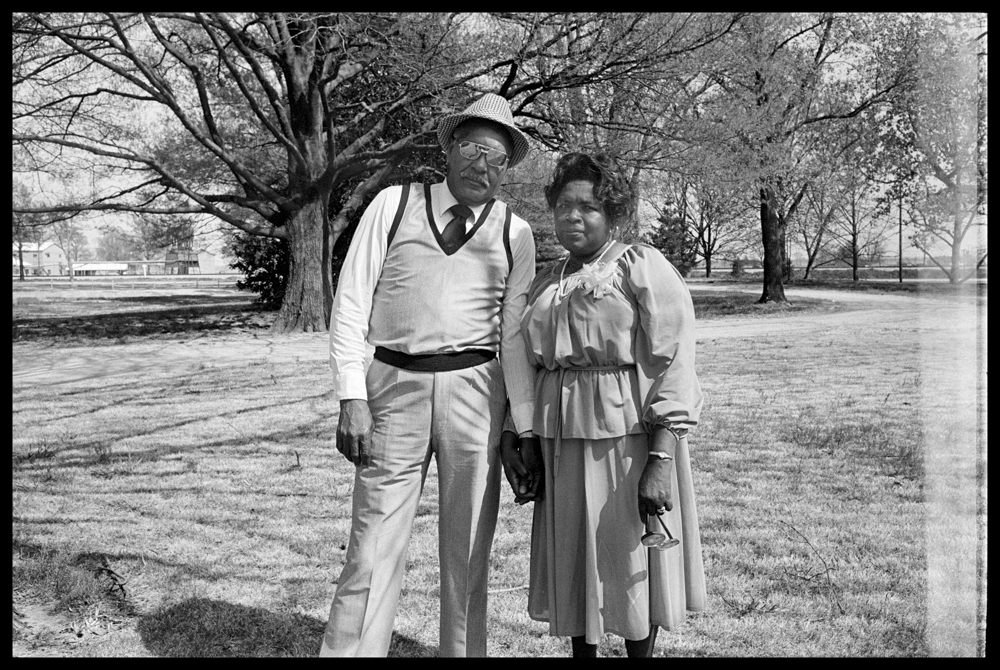
©Lisa McCord, Cully and James in their Sunday Best, 1985, from Rotan Switch published by Kehrer Verlag
What have you learned through this whole process?
I have learned two important ideas through the process of creating Rotan Switch. First, I’ve learned to take things as they come, and not to jump too far ahead of myself; this includes each step from editing and designing with Caleb Cain Marcus, to printing with Longo Media, and the deadlines with Kehrer Verlag Publishing. I have also learned more about gratitude. I am grateful to the many people who helped me create this book, it truly takes a village of people.
Posts on Lenscratch may not be reproduced without the permission of the Lenscratch staff and the photographer.
Recommended
-
Michael O. Snyder: Alleghania, A Central Appalachian Folklore AnthologyJanuary 18th, 2026
-
David Katzenstein: BrownieJanuary 11th, 2026
-
Amani Willet: Invisible SunJanuary 10th, 2026
-
Jamel Shabazz: Prospect Park: Photographs of a Brooklyn Oasis, 1980 to 2025December 26th, 2025
-
Andrew Lichtenstein: This Short Life: Photojournalism as Resistance and ConcernDecember 21st, 2025

